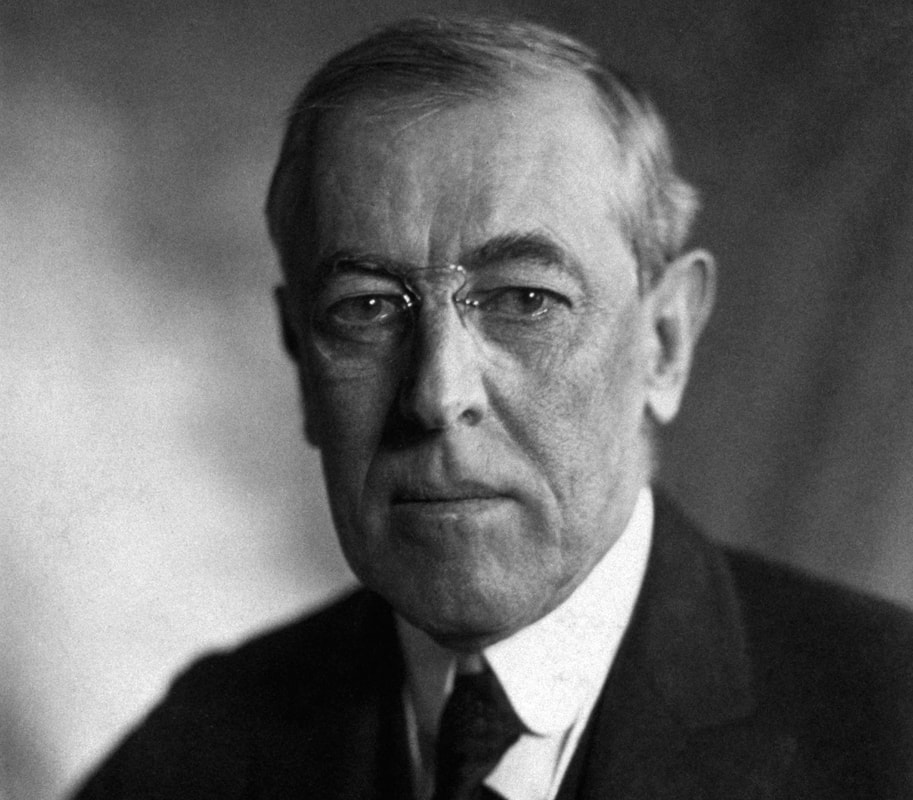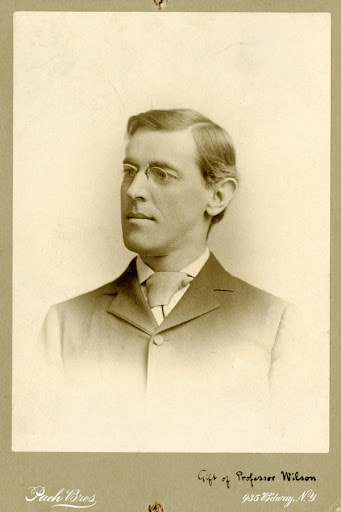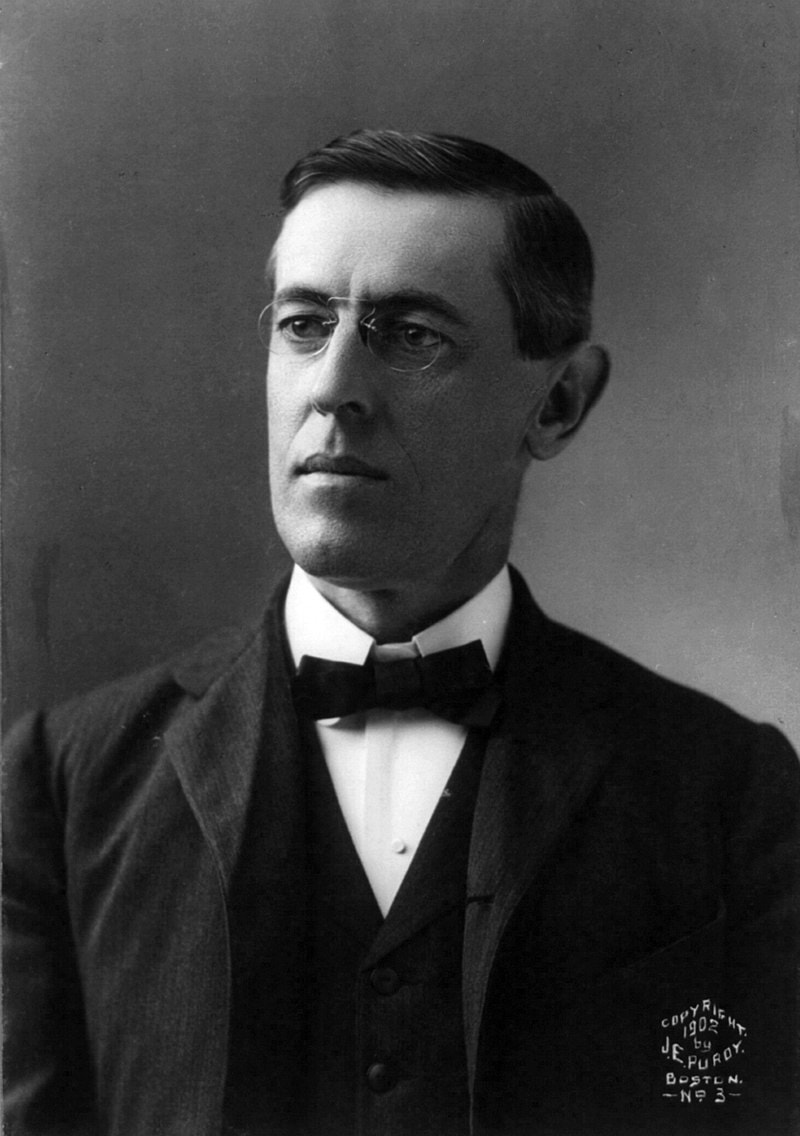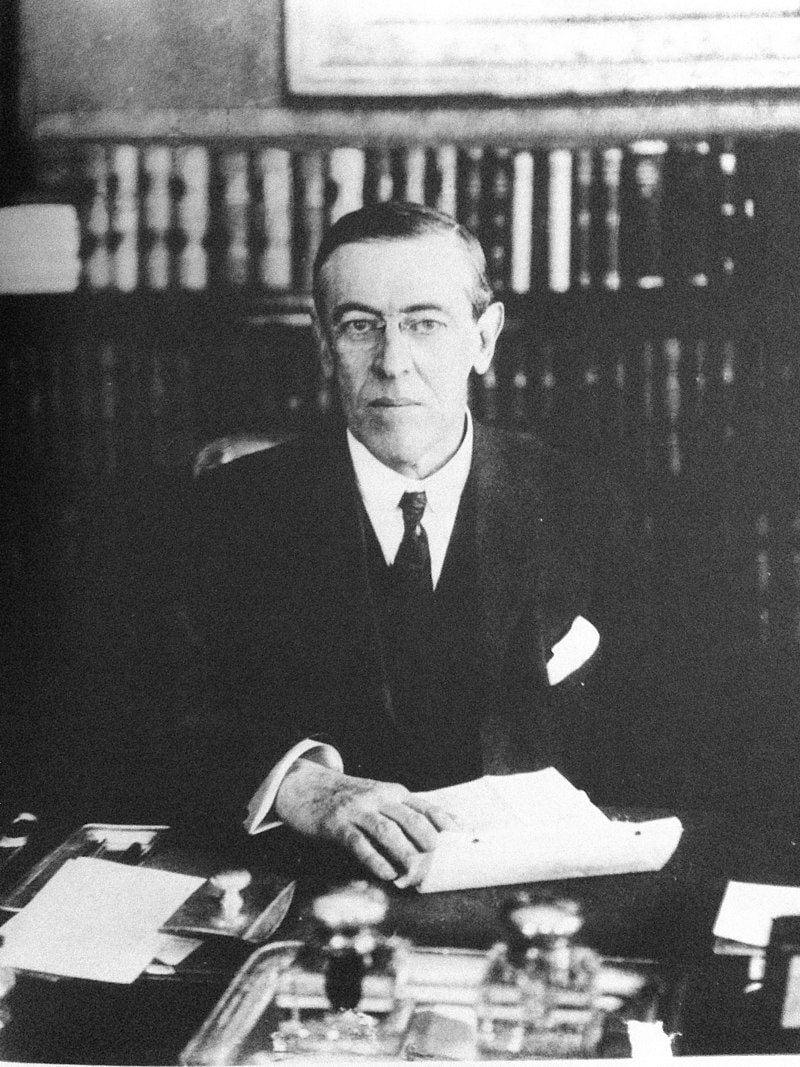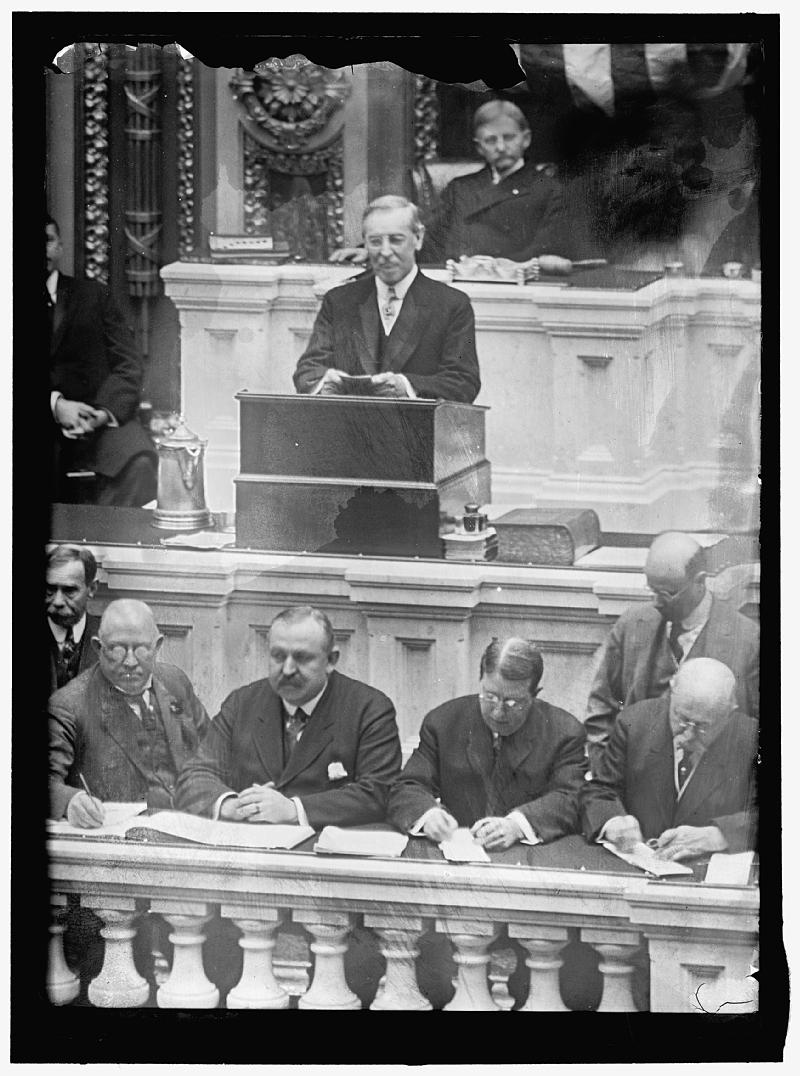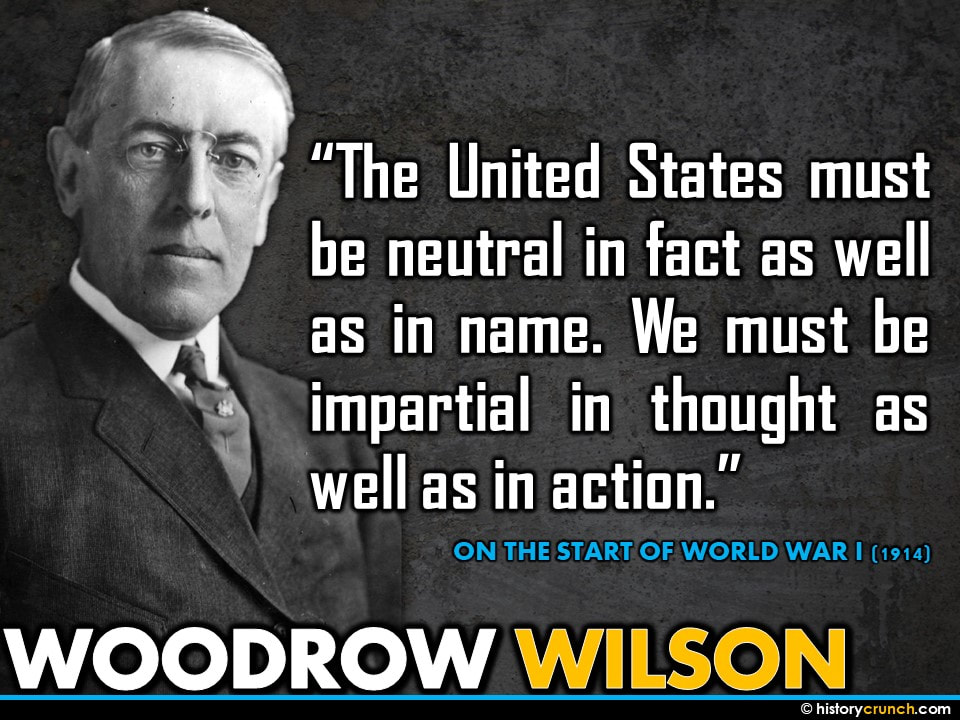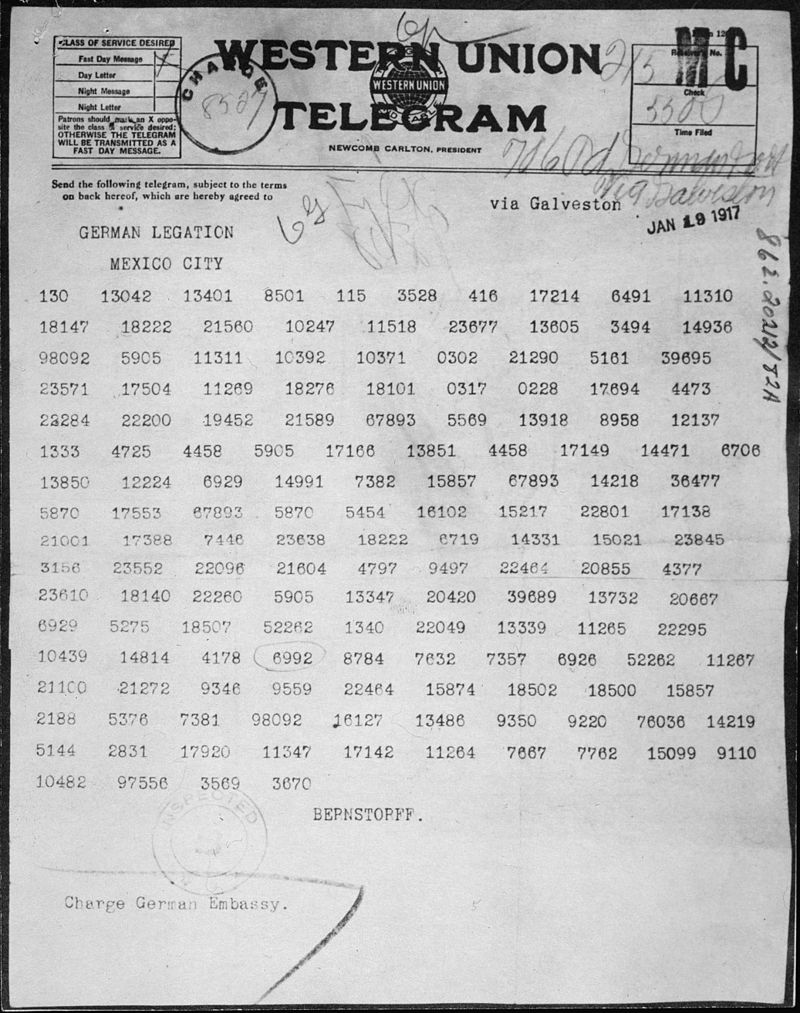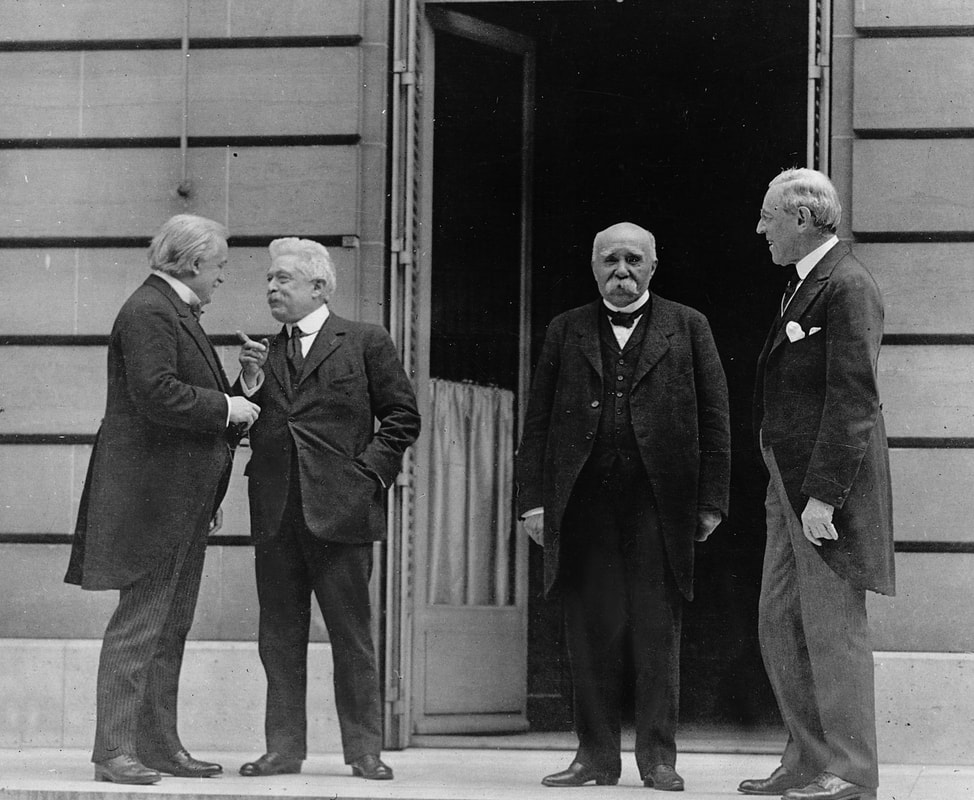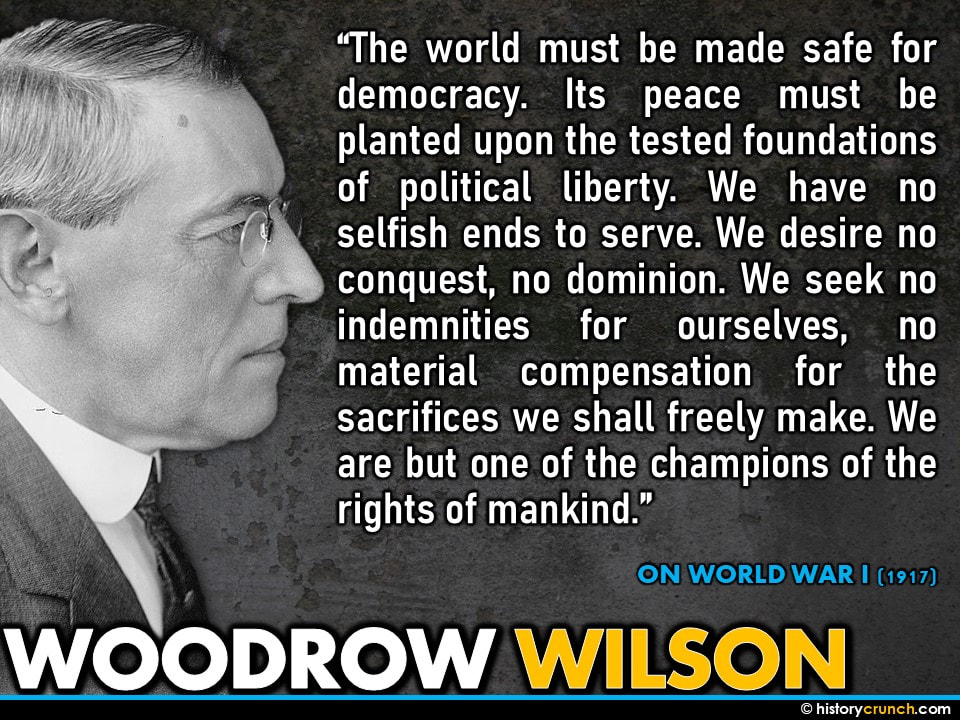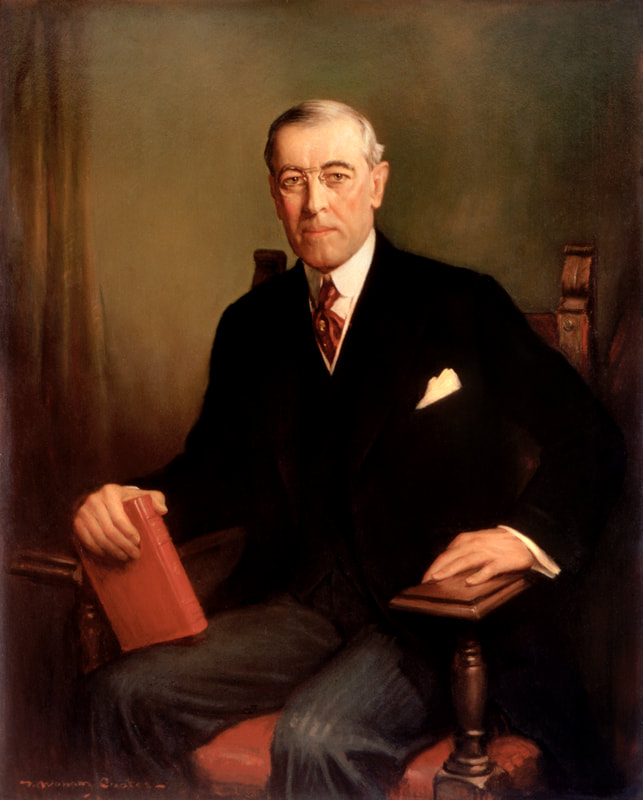WOODROW WILSON
Woodrow Wilson was the 28th President of the United States and served in office from 1913 until 1921. Due to this timeframe, he is most often associated with the events of World War I and the role of the United States in the conflict and its aftermath. In fact, Wilson played an important role in the European peace settlements (Treaty of Versailles) following the end of World War I. Beyond this, Wilson almost made several important contributions to the United States and his presidency had a profound impact on the country.
WOODROW WILSON'S EARLY LIFE
Woodrow Wilson was born on December 28th, 1856 in Staunton, Virginia. His full name at birth was Thomas Woodrow Wilson. His father, Joseph Ruggles Wilson, was an ordained Presbyterian pastor and served in Staunton. However, when Woodrow Wilson was just two years old the family moved to Georgia.
As a young man in Georgia, Wilson was afforded an excellent education. This was due to his parents focus on his learning and religious faith. In 1870, he moved to South Carolina where his father had gained a position as a professor at the Columbia Theological Seminary. Just three years later, in 1873, Wilson began his college education at Davidson College in North Carolina. The next year, he transferred to the College of New Jersey, which today is known as Princeton University. While there, he studied political philosophy and history. He especially took an intertest in different systems of government, such as the parliamentary system used by the British. Wilson graduated from Princeton in 1879 and began studying law. After working briefly in 1882 as a lawyer in Georgia, he returned to school to continue his education.
WOODROW WILSON'S ACADEMIC CAREER
In 1883, Woodrow Wilson experienced several important events. First, he proposed to Ellen Louise Axson. They married later in 1885 and eventually had three daughters together. The second important event of 1883 for Woodrow Wilson was when he attended Johns Hopkins University in Baltimore, Maryland. He spent three years at the University during which he studied political science and focused on writing. He obtained his PhD in 1886 and began working as a professor in the years that followed while also continuing his writing. For example, he published several books on political theory and history.
His academic career took a step forward in 1890 when he was elected as Chair of Jurisprudence and Political Economy for Princeton University. The position allowed him to gain more recognition in academic fields and he became known for his writing and public speeches on political theory. This resulted in him being promoted to President of Princeton University in 1902. In this position he passed several significant reforms that improved both the standing of Princeton and Wilson himself on a national level. However, in 1906, he suffered what historians to believe a stroke. This was significant as it impacted his overall health in the rest of his life. As stated previously, Wilson’s role at Princeton University gained him widespread recognition. As such, he began considering a life in politics and openly supported the Democratic Party.
WOODROW WILSON ENTERS POLITICS
In 1910, Woodrow Wilson resigned from his position at Princeton University and accepted the Democratic nomination for the election of the New Jersey Governor. In the election, he faced off against Republican Vivian M. Lewis. Wilson easily defeated the Republican and served as the Governor of New Jersey from 1911 until 1913. His time as Governor of New Jersey helped set the stage for his candidacy in the United States Presidential Election in 1912.
In the 1912 election, Woodrow Wilson ran for the Democratic Party and faced several others including William Taft, who was the Republican incumbent. As well, Theodore Roosevelt, the former Republican President ran for the Progressive Party (also called the ‘Bull Moose Party’). In his campaign, Wilson ran on a platform that proposed limiting the power of large corporations, which was a popular viewpoint at the time. In fact, Wilson won the 1912 Presidential election with 42 percent of the popular vote. He was the first Southerner to be elected as President of the United States since the Civil War.
WOODROW WILSON' PRESIDENCY & WORLD WAR I
Wilson’s first inauguration was on March 4th, 1913. He would ultimately serve two terms and remain in office until 1921. During that time, his presidency was dominated by the events and aftermath of World War I, which took place from 1914 until 1918. However, with that said, he also proposed several major domestic reforms that impacted life for people in the United States.
|
Quite quickly after he took office, Wilson began introducing reforms as part of his ‘New Freedom’ agenda. This included domestic reforms aimed at four main issues, which he highlighted in his campaign for president. The four main issues were the reduction of tariffs, conservation of natural resources, reforms to the banking system, and equal access to raw materials. His goal was to break apart some of the larger corporations to create competition and more equality for American workers and consumers.
While his early domestic reforms were significant, Wilson’s presidency quickly became dominated by the outbreak of World War I in Europe. The war began in the summer of 1914 following the assassination of Austrian Archduke Franz Ferdinand and the events of the July Crisis of 1914. When the war began, Europe was divided between two camps – Allied Powers (Britain, France and Russia) and the Central Powers (Germany, Austria-Hungary and the Ottoman Empire). From the outset of the crisis in Europe, Woodrow Wilson sought to maintain the United States’ neutrality. This neutrality included not only military actions but also trade. In fact, under Wilson the United States tried to trade with both the Allied Powers and the Central Powers. This was eventually prevented when Britain imposed a naval blockade of Germany. As such, the United States did little trading with the Central Powers throughout the early years of World War I.
|
The neutrality of the United States in World War I was a major factor of Wilson’s first term as President of the United States. In fact, when he ran for re-election in 1916, he campaigned on the idea that he kept the country out of the fighting of World War I. In the election, Wilson easily defeated the Republican candidate Charles Evan Hughes with 49 percent of the popular vote.
American neutrality in World War I was eventually tested at the start of Wilson’s second term as president. For instance, in response to the British blockade of Germany, the German Empire began carrying out submarine warfare against ships in the north Atlantic Ocean. For the Germans this was important as they hoped to stop supplies from reaching Britain. Unfortunately, German submarines were responsible for the sinking of several ships which had American citizens on them. The most famous example of this was the sinking of the British ocean liner RMS Lusitania in May of 1915. In total, the German attack on the Lusitania killed 1,198 people including 128 American citizens. Obviously, this created anger in the United States and forced Wilson to deal with the growing crisis. In 1917, the German Empire again began carrying out unrestricted submarine warfare and was one of the main reasons that the United States eventually joined the war effort on the side of the Allied Powers. In fact, in February of 1917, it was discovered that Germany had been in contact with Mexico in hopes of igniting a conflict between Mexico and the United States. This was known as the Zimmerman Telegram, and when combined with Germany’s submarine warfare, it pushed Wilson to eventually declare war against Germany.
On April 2nd of 1917, Woodrow Wilson asked the United States Congress to declare war against Germany. Congress formally agreed with the request and the United States declared war on April 6th. This declaration of war caused Wilson to push for a military draft in order to build up the armed forces as quick as possible. In fact, throughout the course of World War I the United States had conscripted approximately 3 million men for service. The war also had a profound impact on the home front for the United States and Wilson was tasked with raising funds for the war effort while also helping his European allies. American involvement in the war proved incredibly important and helped the Allied Powers eventually force the Central Powers into defeat. For example, an armistice was reached on November 11th in 1918.
|
Woodrow Wilson played a very significant role in the peace settlements that occurred following the First World War I. For instance, he famously proposed Fourteen Points for ensuring European peace. Wilson’s Fourteen Points were set of recommendations for preventing another European conflict and are often viewed as an alternative to the Treaty of Versailles. In general, some of Wilson’s recommendations were used in the crafting of the Treaty of Versailles, but many in Europe considered Wilson to be an idealist and not all of his recommendations became used.
Beyond his Fourteen Points, Wilson also played a significant role in the Treaty of Versailles. The Treaty of Versailles formally ended World War I and laid out punishments for Germany. The treaty was a document that ended the war between the Allied Powers (Britain, France and the United States) and the Central Powers (Germany and Austria-Hungary).
|
The Treaty of Versailles was signed on June 28th, 1919 in the Hall of Mirrors at the Palace of Versailles in France. The three main politicians that participated in the signing of the Treaty of Versailles were: Woodrow Wilson of the United States, David Lloyd George of Britain and Georges Clemenceau of France. Each leader had their own view on how to handle the end of World War I and to what degree Germany should be punished. In general, Britain and France both wanted Germany to be punished such that it could not wage war again. Wilson of the United States differed from Britain and France in that he did not support the idea of punishing Germany for its role in World War I. At the end of the war Woodrow Wilson issued his Fourteen Points in which he laid out a framework for ensuring peace in Europe. As part of his Fourteen Points, Wilson fundamentally opposed the idea of revenge or punishment for Germany and instead supported the idea that any German punishment should aim to rebuild Europe and lead to reconciliation.
Likely the most significant recommendation from Wilson’s Fourteen Points was the call the create the League of Nations, which was to be an international organization tasked with preventing another global conflict. However, despite playing a central role in its creation, the United States did not formally join the League of Nations due to disagreements over the role of the United States by Members of Congress.
WOODROW WILSON'S FINAL YEARS & DEATH
Following the end of World War I, Woodrow Wilson began to suffer from failing health. For instance, he suffered a stroke on October 2nd, 1919. The stroke was so severe that he was paralyzed on his left side and was essentially bed-ridden for weeks afterwards. At the time, the country was facing a range of significant issues. For example, the events of the Russian Revolution in 1917 led to the First Red Scare in the United States and the fear of the spread of communism. Second, the United States was undergoing a great deal of change due to the rise of feminism and calls for women’s suffrage (the right to vote). Third, the Flu Pandemic of 1918 devastated countries around the world, including the United States, which suffered over 600,000 related deaths throughout 1918 and 1919. Finally, the issue of the prohibition of alcohol was at its height with the passage of the 18th Amendment in 1920.
|
Despite all of these lingering issues and his own failing health, Wilson sought to compete for a third term as President of the United States. Although he was willing to continue his political career, the Democratic Party leadership opted not to nominate him for the 1920 Presidential election. Instead, they ran a ticket consisting of Governor James M. Cox and Assistant Secretary of the Navy Franklin D. Roosevelt. The Republican Party nominated Senator Warren G. Harding. Harding won the election quite easily and replaced Wilson as President of the United States.
Wilson spent much of his remaining years writing and following the politics of the day. However, his health continued to decline, and he died in Washington D.C. on February 3rd, 1924. His body was placed in a sarcophagus in Washington National Cathedral.
Historically, Woodrow Wilson is remembered as a war-time President in relation to his role in World War I. He is also remembered for his domestic policies which were aimed at assisting American workers and consumers by preventing corporations from having too much power. With that said, he has also been criticized for some of his decisions, especially in relation to the treatment of African Americans. In short, he allowed the continuation of some segregationist policies, which negatively impacted African American communities.
|
CITE THIS ARTICLEAUTHOR
|
|

